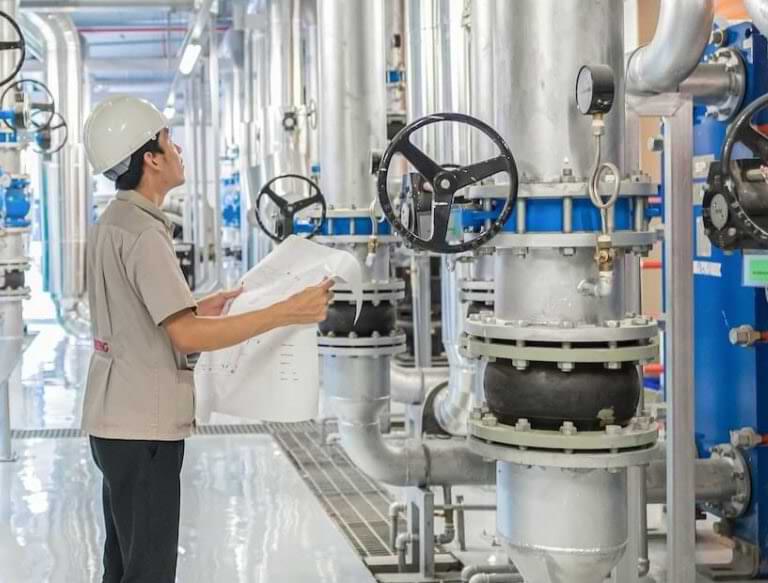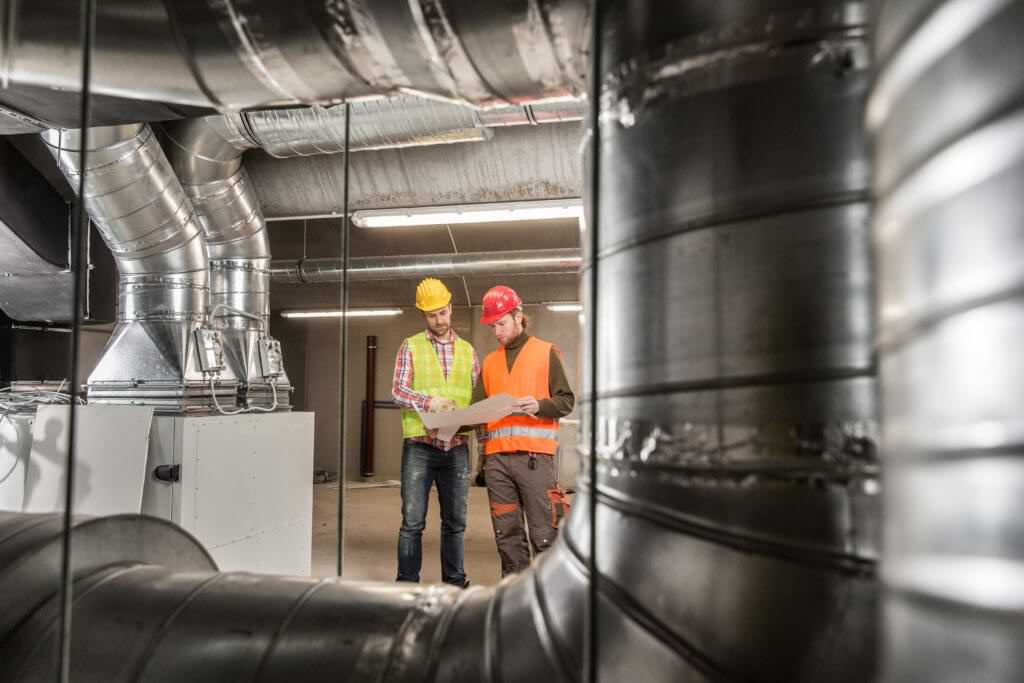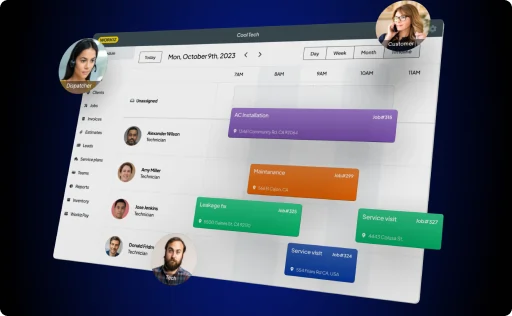In response, HVAC startups are coming up with new and innovative ways to meet these demands. And since these are just startups, their solutions are designed to make them easy to adopt by experienced field service pros.
Why you should partner with an HVAC startup?
1. Innovation:
HVAC startups are focused on coming up with new solutions to existing problems. This means that they’re always ahead of the curve when it comes to new technology.
2. Ease of use:
Many HVAC startups have designed their products with field service pros in mind. This means that their products are easy to use and require minimal training.
3. Affordability:
Because they’re focused on making their products affordable, HVAC startups offer a great value proposition for both HVAC pros and consumers.
4. Approachability:
You can get in touch with an HVAC startup via phone call, email, or whatever works for you. Being startups, chances are they will even reach out to you first to see if you are interested in trying the product.

How to choose a startup technology to implement
While we encourage you to keep trying new technologies to keep your business one step ahead of the competition, it’s clear that not every new technology isn’t a great fit for your field of work. If an HVAC app doesn’t work for some reason, you can always uninstall it and move on. Things are different when the technology is installed in your clients’ homes. In this case, you’ll want to make sure that the technology you choose is actually an improvement on the status quo and will make your clients’ lives easier.
That’s why you must be strategic when looking at HVAC startups and their technology. Here are some factors you should consider:
– How does this startup’s solution compare to other solutions on the market, and is it more or less compatible with the current systems you provide?
– What needs does this particular solution address?
– How easy is it to use?
– Is it affordable?
-Is it tested or considered safe to use on an HVAC system in North America? (in case the company isn’t American or Canadian)
-How stable is the startup developing the product (you don’t want to find out one day that you don’t have customer support)?
When looking at HVAC startups, it’s important to do your research and ask the right questions. The last thing you want is to invest in a company that isn’t going to be around for long or doesn’t have a good product.
With that in mind, here are 15 of the most promising HVAC startups to keep an eye on. Remember where you first heard about them!

Top HVAC startups to consider
dPoint Technologies
This startup has developed a method to cool buildings using phase change materials. They describe their humidifiers as a balance of plant components that is currently in use in thousands of fuel cell systems around the world. This could potentially be a more energy-efficient way to cool buildings, as it does not require refrigerants.
SinoGreen
This Chinese startup has developed an air conditioner that uses chilled water instead of traditional refrigerants. That being said, the company doesn’t have a website, so it isn’t clear how to get a hold of its products in North America.
Hydronic Shell
Enabling the integration of shading devices, photovoltaic panels, and exterior lighting, Hydronic Shell is meant to improve the aesthetic of multi-complexes where the AC units normally hang from the exterior walls. The company calls its installation method “non-invasive” since it’s located on the upper side of the building.
Oxygen8
Removing the need for using traditional HVAC equipment, this startup has developed a system that can control temperature as well as humidity. A special Evans cycle is used to cool and dehumidify the air, making the system suitable for both residential and commercial applications.
Nationwide Coils
Are your clients tired of replacing their coils every few years? This startup’s coils for HVAC systems are designed to be more durable than competitors. Plus, they’re American-made, making them both safe to use and great to purchase in order to support the domestic economy.
Phononic
Rather than traditional refrigerants, this solid-cooling technology uses phonons, which are quasiparticles capable of carrying heat. This means that their system doesn’t contribute to global warming.
Genea
Focusing on property teams and tenants in commercial real estate, this startup’s cloud-based software aims to regulate energy consumption with ease. Tenants can access the “Overtime HVAC” feature directly from their smartphones and submit requests for HVAC and lighting maintenance after hours. By receiving these requests and answering them, property management can generate billing effortlessly.
Optimum Energy
Using this startup’s software, large-scale HVAC systems can run more efficiently while factoring in the weather, occupancy, and time of day to optimize performance.
Entic
This startup’s analytics and optimization software tries to reduce energy consumption in commercial buildings. Among other things, it enables users to control HVAC systems from their smartphones. The app also provides users with information about their own energy usage and tips on how to save energy.
Viking Cold Solutions
If your clients aren’t present at their offices at nighttime or travel frequently during weekends, this is the energy-saving solution they’ve been waiting for. Viking Cold Solutions has developed a thermal storage system that can store energy during off-peak hours and release it during peak hours. Their long-duration TES Systems are said to have a Levelized cost of energy LCOE of only 2 cents per kWh.
Enerbrain
Use the weather to your advantage! The startup has developed a system that lets thermostats automatically adjust their set points based on the weather, occupancy, and other factors. The system is designed to reduce energy consumption by up to 30%.
Tado
An HVAC technology for the younger generation, this startup makes home-use thermostats that can be controlled via smartphone. These thermostats also adjust the temperature automatically based on the weather outside. Tado says its technology is set to minimize energy consumption by 31%.
BrainBox AI
Finally, an app for technicians! This AI wants to help HVAC contractors diagnose and fix problems with HVAC systems. The technology mainly applies to commercial buildings producing a large portion of global GHGs.
KAD Air Conditioning
If you’re looking for a duct equipment alternative, this one’s for you. KAD Air Conditioning is said to be one of the most prominent manufacturers of Ducting in the UAE and is also operational in many other countries.
Dandelion Energy
Why reduce energy consumption if you can replace its sources with sustainable ones? This is what this startup does for heating oil, propane, natural gas, and other non-sustainable energy sources when replacing them with geothermal installations. As little as $150 a month, the company is reported to be the #1 geothermal contractor in the Northeast, claiming to save clients $1,000s each year on heating and cooling bills.
Workiz
You didn’t really think we would leave ourselves out of this list, did you? Workiz is a startup offering HVAC pros state-of-the-art management software to streamline operations as their business grows. Built by and for pros, we take great pride in how efficient our software is to use – so much so that even every single one of your techs and dispatchers can get used to it in no time. Book a free demo to see for yourself!
Conclusions
The HVAC industry is ripe for innovation, and many promising startups are working on new and improved technologies. These companies are just a few of the most promising ones to watch out for in the coming years. With new products and services that can make a real difference for both businesses and homeowners, the HVAC industry is poised for some major changes. All are meant to make electricity consumption more sustainable and affordable.
So if you’re looking for an HVAC company on the cutting edge, keep an eye on these startups. Partnering with the right one can give you an easy, competitive advantage and elevate your marketing thanks to partnering with a powerful tech solution looking to establish its client base.
And while we can’t vouch for every startup mentioned, we can only say that Workiz has proven to be most successful in upscaling the efficiency of the teams using it. HVAC teams that use Workiz increase their revenue by 22% on average – which makes a significant difference to their bottom line. Give it a 7-day free trial to see how it works for you!









